
What Over-the-Counter (OTC) medications can I take and still be safe to fly?
First, ask yourself “Do I have a condition that makes me unsafe to fly?” Title 14 CFR 61.53 is the regulation, which prohibits flight with a known medical deficiency [unless cleared by the FAA] and requires that you determine that you are fit to fly prior to each flight.
☐ Am I sick?
☐ Am I having trouble clearing my ears at ground level?
☐ Do I feel bad enough that I keep thinking about how I feel?
☐ Are others asking me if I am ok?
☐ Do I feel good enough to fly ONLY if I take medication?
☐ Am I getting worse?
Next, consider these issues before operating an aircraft:
☐ In the last five days, have you taken or do you plan to take any medications before flying?
☐ If currently taking a medication only for symptom relief, would you be safe to fly without it?
☐ Do you have any other underlying health conditions?
Discuss these conditions with your AME or family physician to determine if you are safe to fly.
Specifically ask about your ability “to operate machinery” (including any aircraft).
Discuss if the medication, OTC or otherwise, will pose a problem with the underlying condition or
Other health conditions and/or other medications that you are taking.
**If you answered to any of the above questions: YES---STOP!! You might not be fit to fly!**
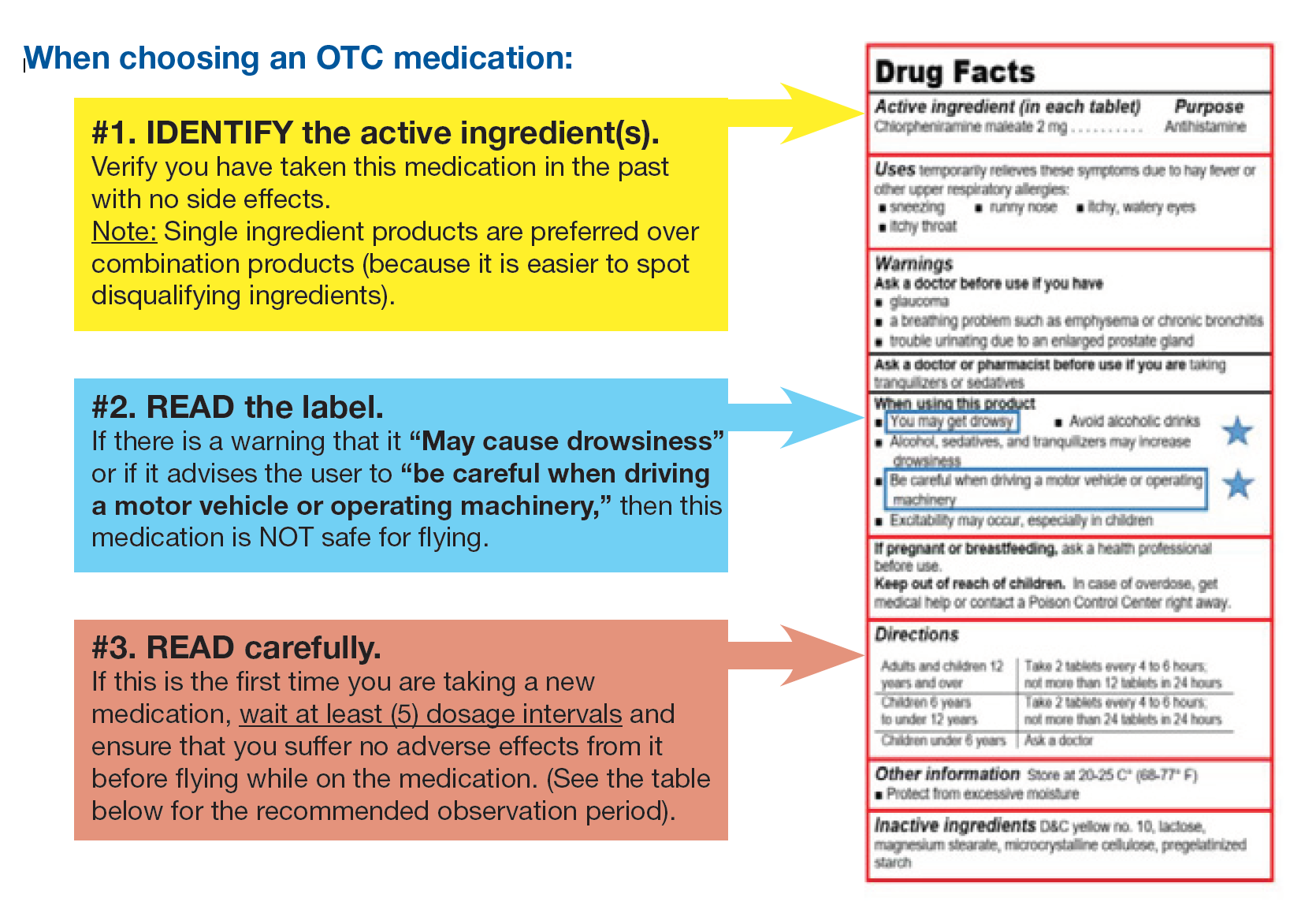
#3. READ carefully.
If this is the first time you are taking a new medication, wait at least (5) dosage intervals and ensure that you suffer no adverse effects from it before flying while on the medication. (See the table below for the recommended observation period).
#2. READ the label.
If there is a warning that it “May cause drowsiness” or if it advises the user to “be careful when driving a motor vehicle or operating machinery,” then this medication is NOT safe for flying.
#1. IDENTIFY the active ingredient(s). Verify you have taken this medication in the past with no side effects.
Note: Single ingredient products are preferred over combination products (because it is easier to spot disqualifying ingredients).
When choosing an OTC medication:
If you take any of the “NO GO” medications (listed below in the table) or if you have had side effects from the medication before, wait at least five (5) dosage intervals after the last dose before flying see the examples below for the recommended grounding period after discontinuation of the medication).
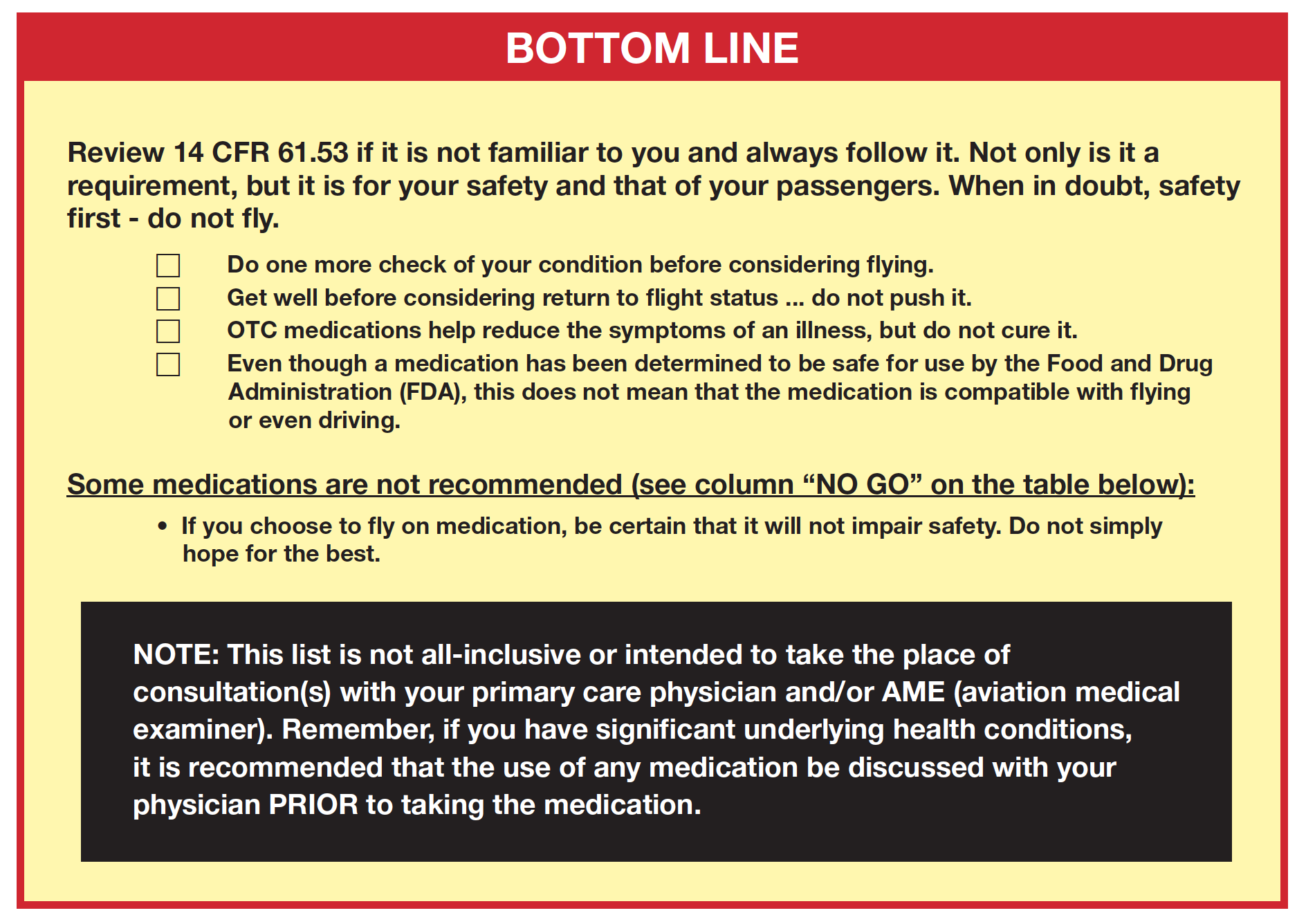
BOTTOM LINE
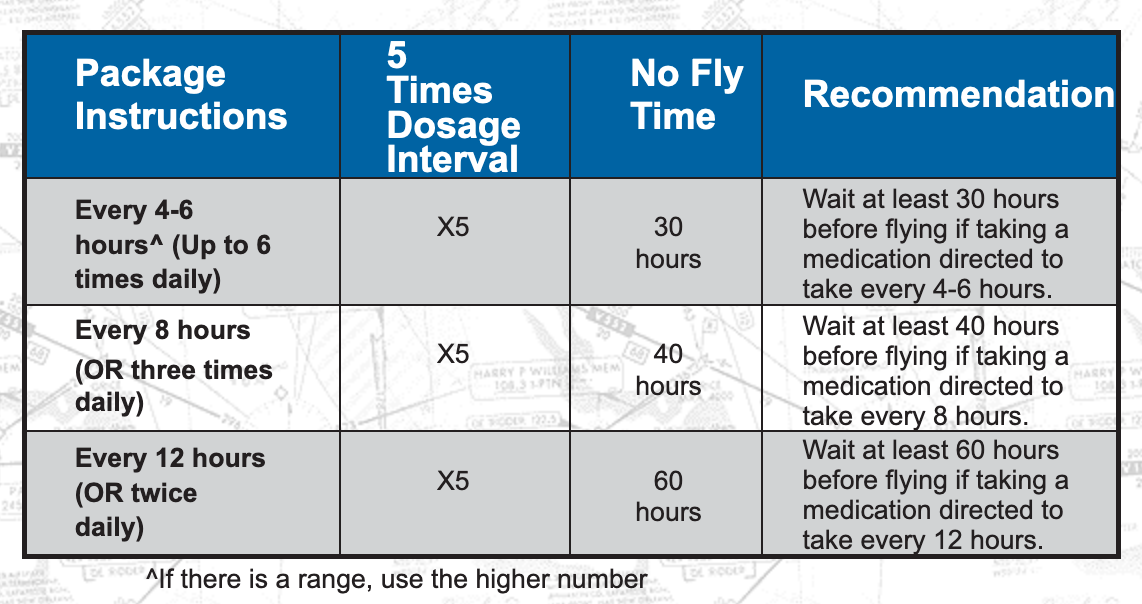
Review 14 CFR 61.53 if it is not familiar to you and always follow it. Not only is it a requirement, but it is for your safety and that of your passengers. When in doubt, safety first - do not fly.
c Do one more check of your condition before considering flying.
c Get well before considering return to flight status ... do not push it.
c OTC medications help reduce the symptoms of an illness, but do not cure it.
c Even though a medication has been determined to be safe for use by the Food and Drug Administration (FDA), this does not mean that the medication is compatible with flying or even driving.
Some medications are not recommended (see column “NO GO” on the table below):
If you choose to fly on medication, be certain that it will not impair safety. Do not simply hope for the best.
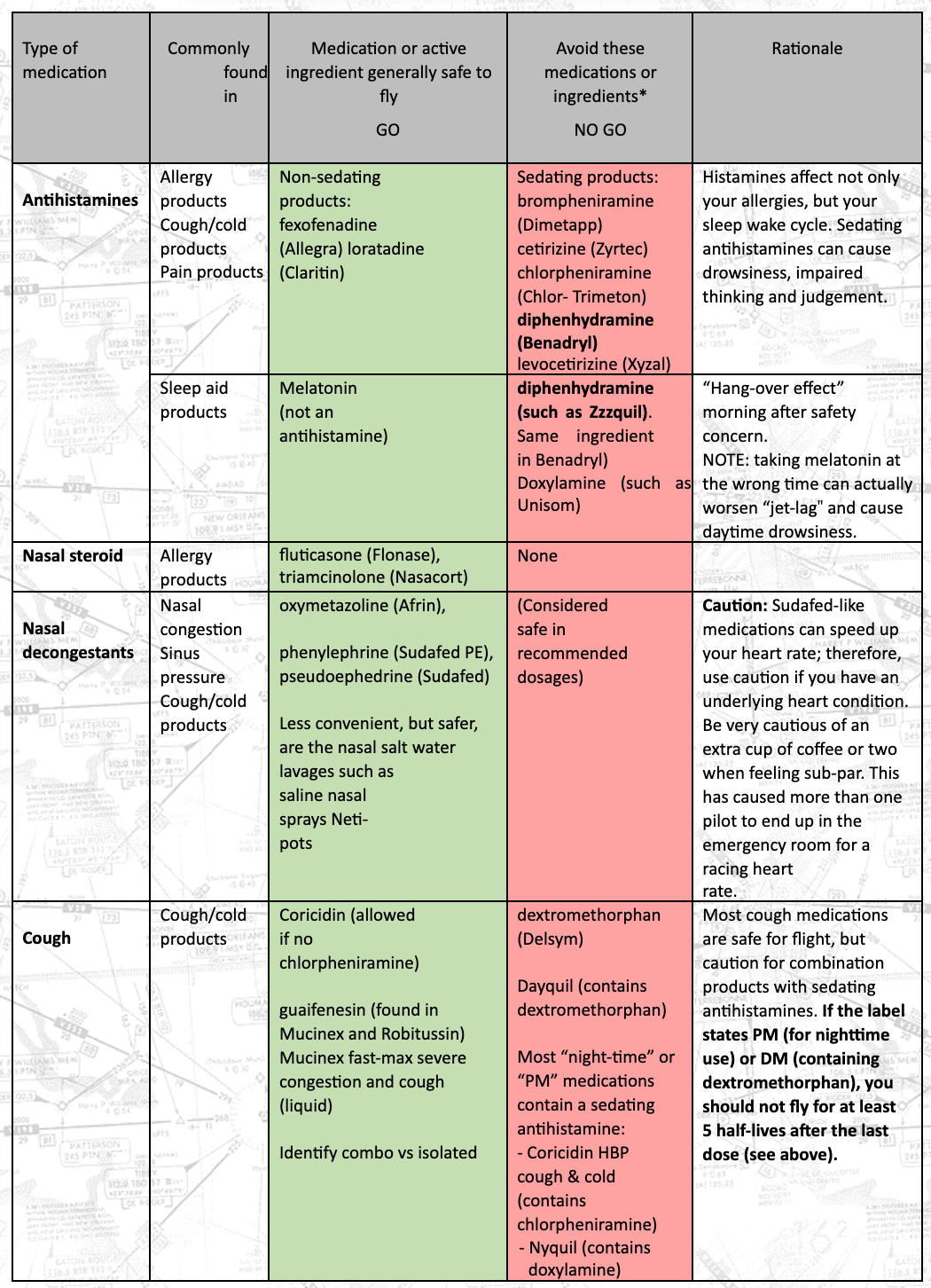
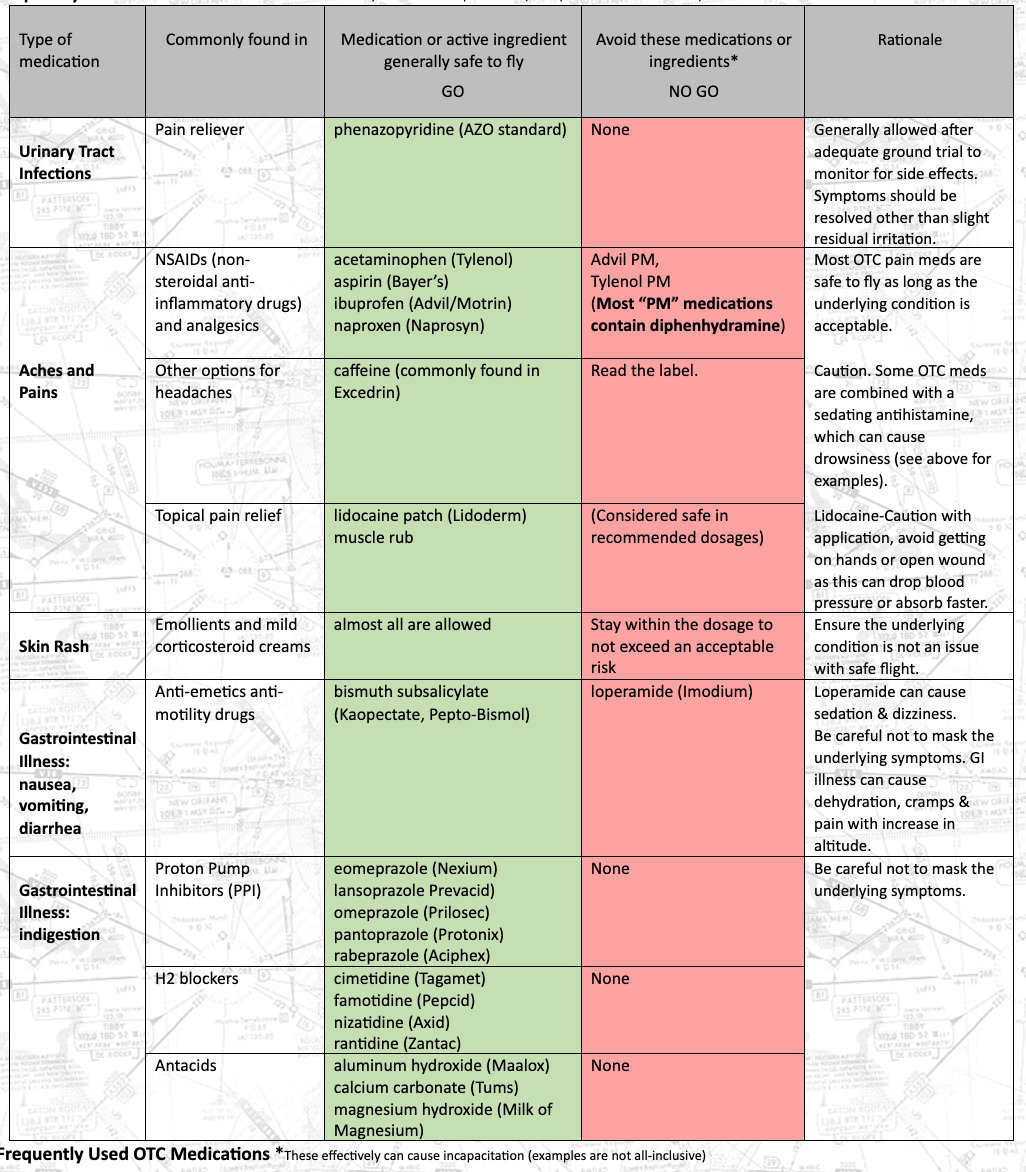
NOTE: This list is not all-inclusive or intended to take the place of consultation(s) with your primary care physician and/or AME (aviation medical examiner). Remember, if you have significant underlying health conditions, it is recommended that the use of any medication be discussed with your physician PRIOR to taking the medication.Frequently Used OTC Medications *These effectively can cause incapacitation (examples are not all-inclusive)
Additional Resources
AAM-400 Medication Brochure
Medication Brochure Link
Erectile Dysfunction Medication
sildenafil (Viagra) tadalafil (Cialis)
Erectile Dysfunction Medication Link
Hypertension (HTN) Medication
Hypertension Medication Link
SSRI (antidepressant) Program
SSRI PROGRAMS LINK
citalopram (Celexa) escitalopram (Lexapro) fluoxetine (Prozac) sertraline (Zoloft)
Additional medication information found in the AME Guide:
Additional Medical Information in AME Guide
Do Not Issue (DNI) Do Not Fly (DNF)
Do Not Issue Do Not Fly Link
DNI—airmen should NOT take any of these medications or classes of medication and fly
DNF—airmen should NOT fly until these medications are stopped and a period of time has elapsed
Oral Diabetes Medications
Oral Diabetic Medications Link
See Item V. Acceptable Combinations of Diabetic Medications
OK-20-0302 11-13-19